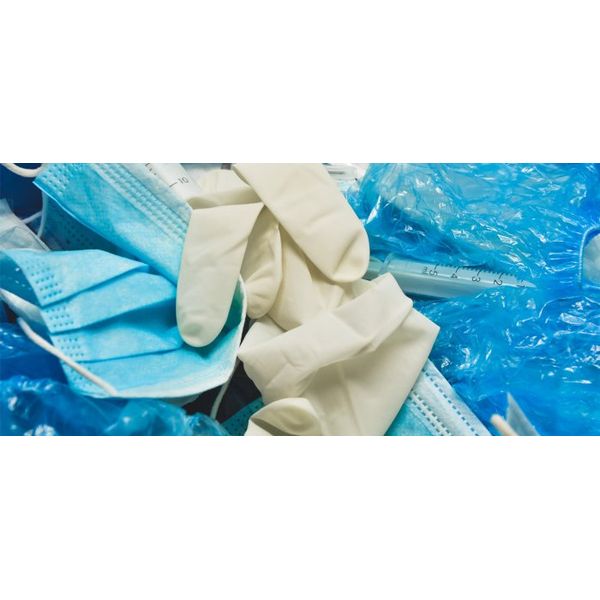

- Home
- Companies
- Newster System S.r.l.
- News
- Growing plastic pollution in wake of ...
Growing plastic pollution in wake of Covid-19
456 million gloves and above all a billion masks.
Is the amount of Personal Protective Equipment (PPE) we consume every month.
Impressive numbers, so much so that if we only throw 1 percent of the masks on the ground, we will disperse 10 million into the environment.
The Polytechnic of Turin estimates that the need for face masks in Italy is over one billion per month, equal to about 400 tons of waste produced every day. Already worn in healthcare facilities to protect patients and food from possible contamination, they have become part of our daily life.
The pandemic has led to a surge in pollution from disposable products like plastic face masks and hand sanitizer bottles. Our streets, beaches and ocean have been hit by a tidal wave of Covid-19 waste including plastic face masks, gloves, hand sanitizer bottles and food packaging.

Is it possible or desirable to rethink the supply chain by giving a new life to what has been disposable until now?
The most common technology used for the treatment of waste is the incinerator.
Incineration is a high-temperature dry oxidation process that reduces organic and combustible waste to inorganic and incombustible matter; the resulting benefit is a significant reduction of waste volume and weight, while the big disadvantage is the generation of large quantities of dioxins and furans by the combustion of health-care waste (PVC) at high-temperatures of 800°C to 1100°C.
According to Stockholm Convention (Article 5 - Annex C), governments are required to reduce or eliminate releases from unintentional production of dioxines and furans. In order to overtake this problem, the Stockholm Convention states that “priority consideration” should be given to alternative processes, which avoid the formation and release of these chemicals and other possible hazardous emissions. Governments must require the use of the best available techniques (BAT) and promote the best environmental practices (BEP).
The BAT/BEP guidelines describe alternative technologies like our Frictional Heat Technology.
To find more about this alternative treatment watch the video of the equire made by Report, an italian televison program.
In order to positively treat potentially infectious solid waste, we developed the NW Series, a range of sterilizers that have their core in Frictional Heat Treatment.
Each sterilizer combines the work of a two rotor blades system, which takes care of grinding the material, with the proper temperature-time curve needed to sterilize it, that reaches 150 Celsius degrees.
The result is a user friendly sterilizer that, without the use of any chemical agent, converts the waste in harmless material reduced in its size up to 75%.
This means that for 10 kilograms of potentially dangerous materials, like needles and bandages, that enters the system, what comes out after about 30 minutes are 2,5 kilogram of dry, non-recognizable and innocuous small-sized granules. No truck moves, no engine runs, no incinerator works. No additional staff members are hired, no human resources needed. The entire process takes place on-site under the control of a person that is specifically trained to do so and guarantees the maximum efficiency for the hospital and the community that surrounds it.
